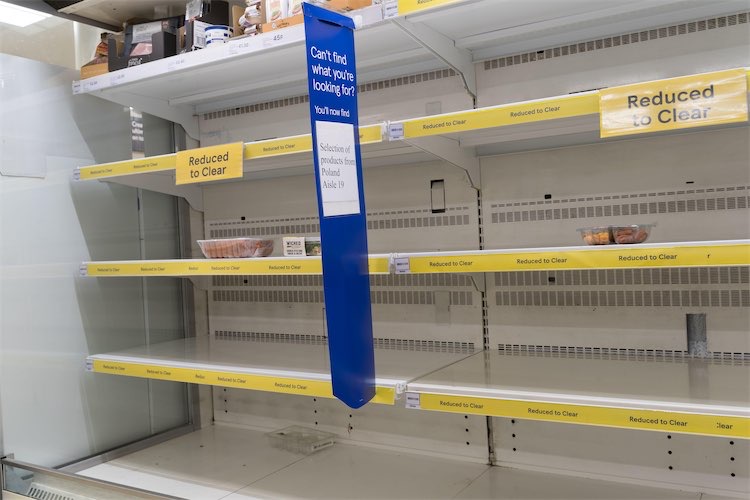Lorry Drivers Union Criticises "Ridiculous" Isolation Exemption Process For Critical Workers
4 min read
The lorry drivers union has described the government as putting the industry into a “ridiculous situation” by making firms apply to be exempt from self-isolation when the sector is already facing huge job shortages.
Hauliers carrying food supplies have been categorised as critical workers by the government as a profession that can ask for permission to avoid isolation if they have been contact traced by the NHS and do not have the virus.
Whitehall staff will need to see the number of people each business requires to leave self-isolation, and details of the roles they carry out, before deciding whether to give permission.
A spokesperson from the United Road and Transport Union (URTU) told PoliticsHome the whole process will be time consuming in an already under pressure sector and there is no information on how long it will take to get the exemption for drivers.
He said: “Our union has been warning for many, many years that there will become a point when there will not be enough professional drivers to ensure that supplies are delivered, businesses can continue operating and our supermarkets are fully stocked. All that the pandemic has done is make this happen sooner.
“If certain sectors are going to be exempt from isolation, there needs to be a clear plan of who does. and does not, need to isolate, rather than the ridiculous situation where companies need to write to the Government with the number of people they want to be exempted, as well as providing their job titles."

“We are at a critical point now but the government has been made fully aware, over many years, of the developing driver shortage situation.”
Earlier this week the department for transport released a package of measures to try and encourage more British people to become HGV drivers, including launching a new consultation on allowing drivers to take one test to drive both an articulated and rigid lorry.
There are estimates from the sector that they are 100,000 drivers short, and that 25,000 drivers left the UK after Brexit.
Secretary of State for Defra, George Eustice, has also launched a new scheme relating to the food supply chain where at 500 sites, including supermarket depots and manufacturing, workers can avoid isolation if they are double jabbed.
Eustice predicted this exemption could apply to 10,000 workers, including in the bread and dairy companies and other manufacturers. However it is not known how many lorry drivers working in the food supply chain this automatic exemption may cover.
Dramatic photos emerged of food shortages in supermarkets due to the so-called “pingdemic” this week, with rising cases of coronavirus affecting staffing levels in supermarkets and the food supply chain.

Updated government guidance released last night in response nationwide staffing shortages set out that key workers who have been contact traced and whose absence would result in serious disruption to critical services, should have their employer contact their relevant government department.
Civil servants will assess applications and where a specific case meets the criteria, the employer will receive a letter from Whitehall staff setting out the named critical workers designated and telling them what measures they and those workers need to follow.
The 16 sectors covered by the new rules including energy, civil nuclear work, digital infrastructure, water and waste.
Paul Mummery, of the Road Haulage Association, said: “The Government’s guidance is confusing and tangled in red tape – and it’s not clear how quickly firms will get an answer. Fully vaccinated staff who test negative should be allowed to continue working – that’s just common sense.
“We cannot afford to lose healthy logistics staff to self-isolation when we’re already short of 100,000 HGV drivers. The pingdemic is putting even more pressure on our creaking supply chain.”
Supermarkets have sought to assure shoppers that there is enough food and disruption is manageable.
A spokesperson for the Co-op told PoliticsHome they were running low on some products and have had some “patchy disruption” to deliveries and store operations.
A statement said: “We are working closely with our suppliers to get re-stocked quickly.”
They also plan on recruiting 3,000 temporary staff members to keep depots running.
A Sainsbury’s spokesperson: “We are working hard to ensure customers can find what they need. While we might not always have the exact product a customer is looking for in every store, large quantities of products are being delivered to stores daily and our colleagues are focused on getting them onto the shelves as quickly as they can.”
Tesco said they have plenty of food but have experienced sporadic disruption from the shortage of HGV drivers.
Eustice told the BBC Radio 4 Today programme on Friday the interventions on the food supply chain where generous, where workers won't have to provide names or job roles, and can be tested on site so people can continue to work.
